Welcome to a greener, cleaner approach to keepting pests at bay! As eco-conscious practices take root in homes across the globe, many are seeking out natural pest control methods. Let’s explore some simple yet effective ways to protect your living spaces, sans the harsh chemicals.
Putting health and environment first, natural pest control is blossoming into more than just a trend—it’s a lifestyle. With the uptick in consumer awareness, eco-friendly pest management solutions are growing in popularity, allowing you to nurture your home, garden, and peace of mind, all while keeping the environment chemical-free.
Enlisting Nature’s Allies
Several herbs and flowering plants possess natural pest-repellent properties. By incorporating these botanical allies into your landscaping, you can create a natural barrier against unwanted guests.
Here’s a list of some effective options:
- Repellent Herbs: Lavender, Rosemary, Mint (deter flies, mosquitoes, crawling insects)
- Beneficial Flowers: Marigolds, Borage, Nasturtiums (deter aphids, whiteflies, other harmful pests)
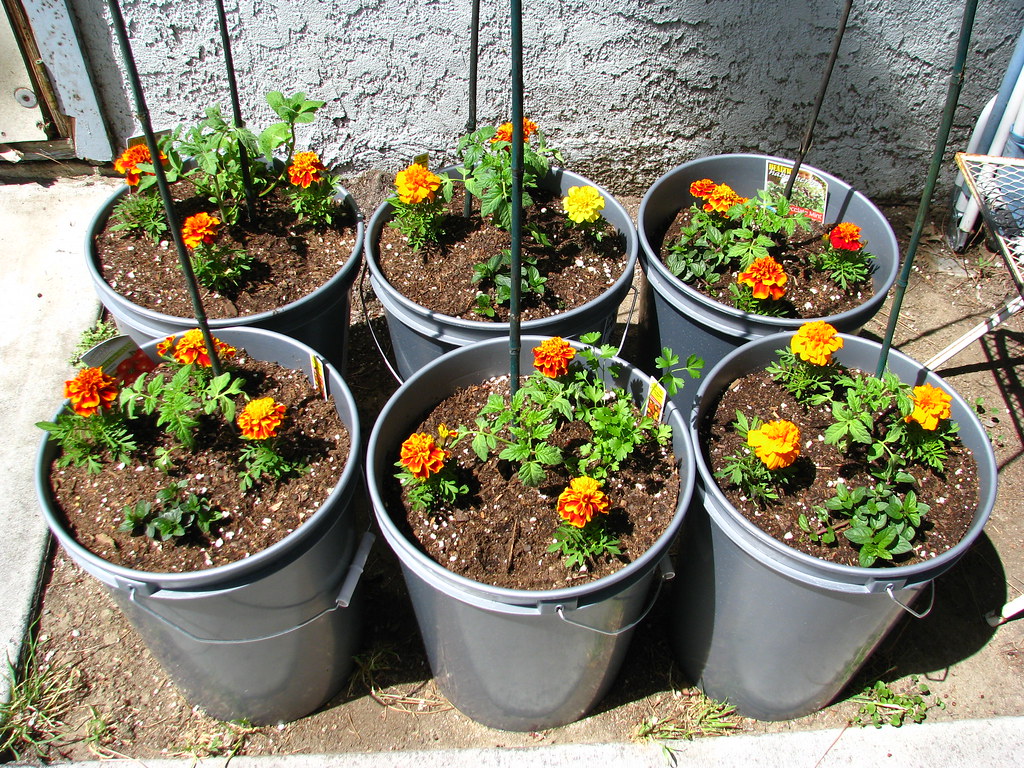
Marigolds not only add splashes of color but also naturally repel garden pests without the need for harsh chemicals.
Remember, these plants are most effective when strategically planted around your property. By welcoming these beneficial companions, you can cultivate a healthy ecosystem that naturally discourages pests, leading to a greener and more peaceful environment.
Essential Oils as Mosquito Deterrents
Mosquitoes can turn a serene evening into a swatting soiree. Enter citronella, eucalyptus, and lavender oils: nature’s own repelling trio. These plant-based powerhouses are not only effective but also double as delightfully fragrant alternatives to synthetic repellents1.
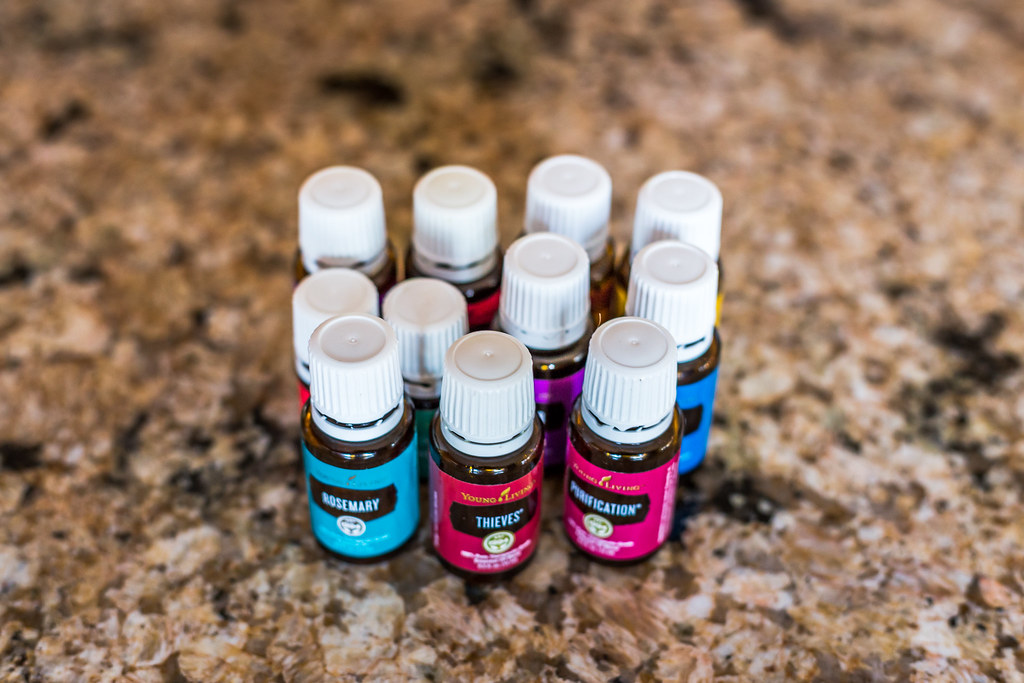
A collection of various essential oil bottles on a countertop, highlighting natural alternatives for pest control.
Methods of Applying Essential Oils
Consider these application methods for maximum benefits:
– Diffusers: Set the mood and keep mosquitoes at a distance.
– Skin applications: Mix with a carrier oil for a homemade repellent on the go.
– Lotion or spray additives: Enhance your favorite body care products with a few drops for an all-natural shield.
Enlisting Beneficial Insects for Garden Defense
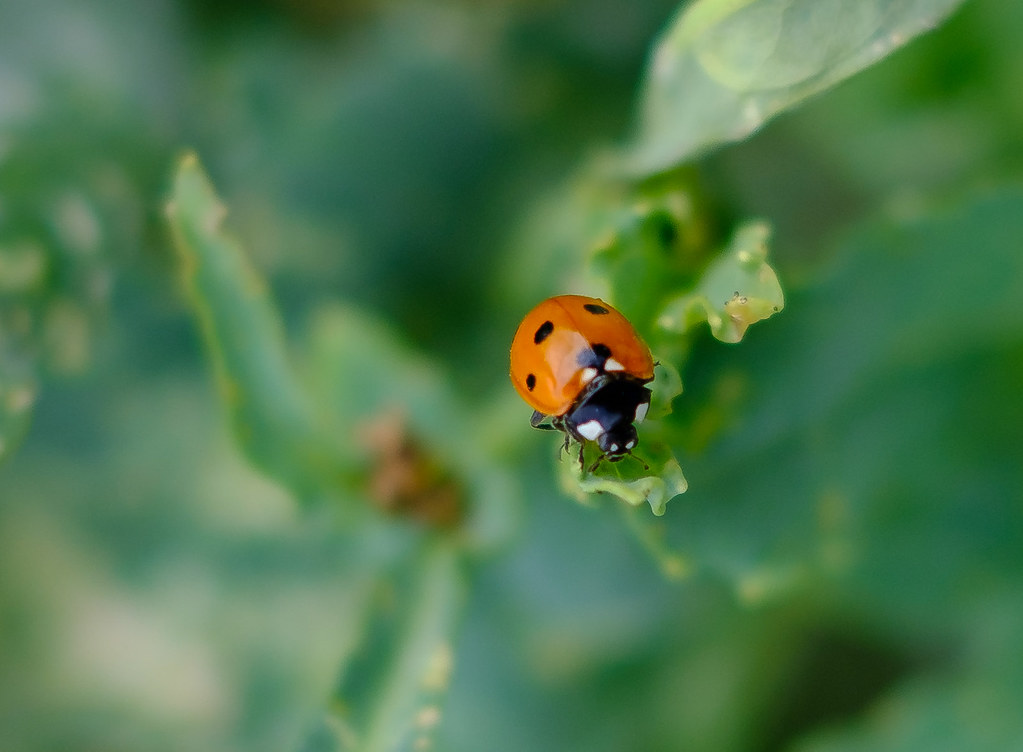
A ladybug navigates a leaf, providing natural pest control by feasting on aphids.
Creatures such as ladybugs and lacewings pack a punch against garden pests. These natural predators maintain the ecological balance, munching away at aphids, whiteflies, and more, allowing your garden to thrive naturally2.
Types of Beneficial Insects
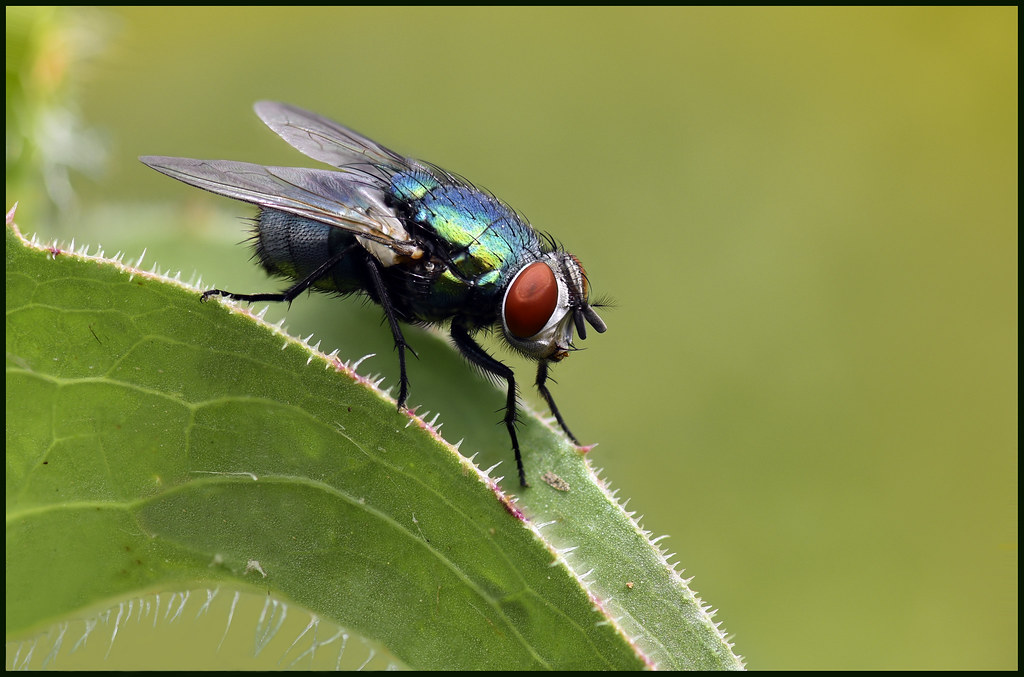
A fly rests on a leaf, playing its part in the ecosystem by pollinating plants and decomposing organic matter.
Ready to invite some insect allies to your garden party? Here’s who to welcome:
- Ladybugs: These charming red and black beetles are voracious aphid eaters. To attract ladybugs, plant dill, fennel, yarrow, and dandelions (yes, dandelions!).
- Lacewings: These delicate green insects with lace-like wings are dedicated predators of whiteflies and thrips. Lure them in with cosmos, dill, fennel, and coriander.
- Ground beetles: These helpful beetles feast on slugs, snails, and other soil-dwelling pests. Provide them with hiding places like mulch, stones, and leaf litter. Bonus: they also help with aeration!
- and more!
Ultrasonic Pest Repellers: Sound Solutions
Trouble hearing that? Pests can! Ultrasonic pest repellers emit high-frequency sounds, imperceptible to our ears but a nuisance to critters’. These devices provide a non-toxic challenge to their comfort, encouraging them to find residency elsewhere1.
Variability in Ultrasonic Repeller Results
Remember, effectiveness can hinge on:
– Pest species: Some pests are more stubborn than others.
– Environment: Open spaces might need multiple devices.
– Pest behavior: Understanding your unwelcome visitors’ habits can optimize your ultrasonic strategy.
Onion Water: A Natural Spider Repellent
Spiders may be helpful outdoors, but indoors? Not so much. Simple yet effective, onion water can keep these eight-legged wanderers at bay. Just slice an onion, steep it in water, and place it where you’d like to deter spiders—a no-fuss, no-chemical guard against these agile arachnids3.
Soap-Based Solutions for General Pest Control
When it comes to pest control, sometimes the simplest solutions are the most surprising. A diluted soap solution can handle a slew of pests, especially the soft-bodied desperadoes like aphids. Just a tad of natural, biodegradable soap mixed with water, and you’ve got yourself an effective, plant-friendly pest repellent. It’s crucial to use this method sparingly and accurately to avoid harm to your plants4.
Conclusion
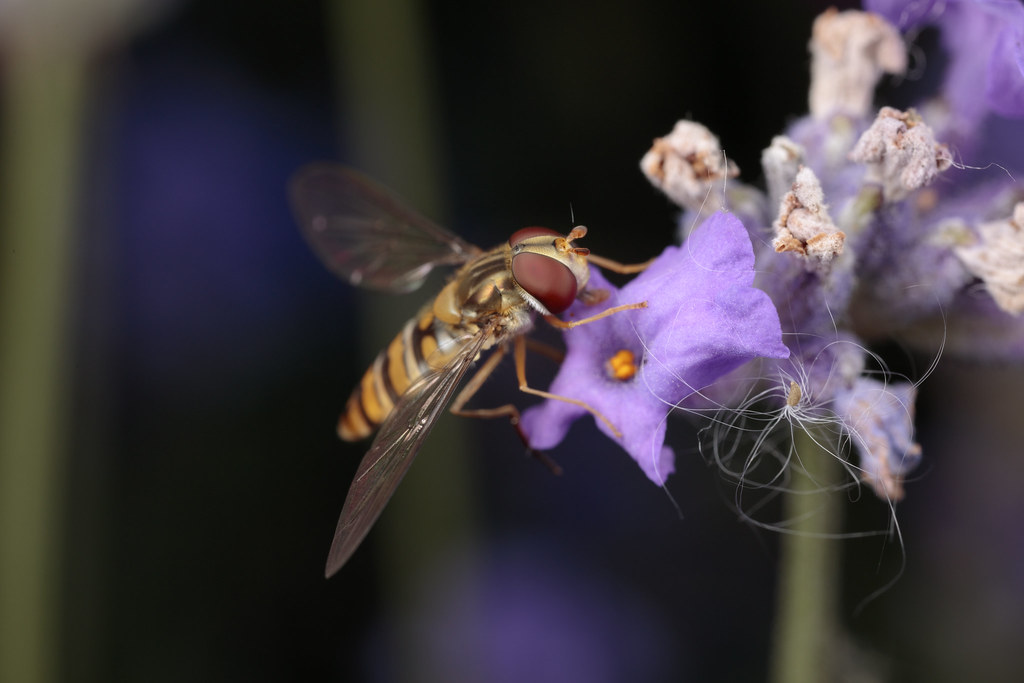
A hoverfly pollinating a lavender flower, which naturally deters pests without the need for harmful chemicals.
Natural pest control brings harmony to your home and garden without relying on chemicals—it’s a way to nurture nature, your health, and the ecological balance. With these five hacks, you’re equipped to create a serene, pest-free environment. Embrace the power of nature, and happy wildcrafting!

Leave a Reply